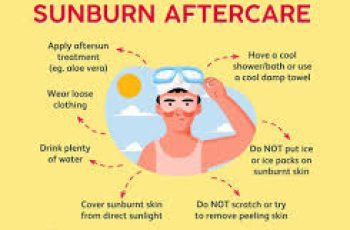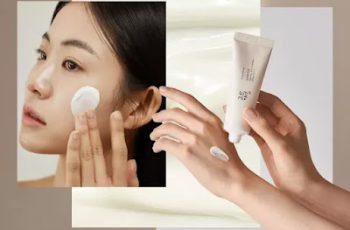
How Do I Know If My Vitamin C Serum is Oxidized?
Vitamin C is one of the most popular and effective ingredients in skincare, celebrated for its ability to brighten the skin, reduce dark spots, and provide antioxidant protection. But, like all good things, vitamin C has a downside: it oxidizes over time, losing its potency and effectiveness in treating the skin. If you’ve been using a vitamin C serum regularly, you might be wondering, how can I tell if my serum has gone bad? Let’s dive into how you can spot an oxidized vitamin C serum, how it affects your skin, and what you should do if you find that your product has expired.
What Happens When Vitamin C Serum Oxidizes?
Vitamin C, or ascorbic acid, is highly sensitive to light, air (oxygen), and heat. These environmental factors cause it to break down over time, a process known as oxidation. The more exposure to oxygen your serum gets, the faster it will oxidize. When vitamin C oxidizes, it loses its antioxidant properties, meaning it becomes less effective in protecting your skin from free radicals and environmental damage. Worse, oxidized vitamin C can even become harmful to your skin.
How Can You Tell If Your Vitamin C Serum Is Oxidized?
The color of your serum is the easiest way to identify whether it has oxidized. Here’s what you need to look for:
Color Change:
Fresh vitamin C serums are typically clear or light yellow. When they oxidize, they gradually turn into a darker yellow or brown color.
The darker the color, the more oxidized the serum is. A bright yellow or orange hue is usually a sign that the vitamin C has gone bad.
Smell:
Fresh vitamin C serum has a slightly tangy or citrus-like scent. If the serum starts to smell off, sour, or rancid, it’s likely that it has oxidized and should no longer be used.
Texture:
Some users report that oxidized vitamin C serums may feel a bit thicker or sticky when applied to the skin. While this isn’t always the case, if the texture feels different than when you first opened it, that’s a potential sign of oxidation.
Packaging:
Many vitamin C serums are packaged in amber or opaque bottles to protect the product from exposure to light. If your serum is in a clear bottle, or you notice it’s been exposed to light for a long period, the oxidation process will be faster.
What Does an Oxidized Vitamin C Serum Do to the Skin?
Using an oxidized vitamin C serum isn’t the end of the world, but it can lead to a few skin concerns. Here’s how it affects your skin:
Loss of Effectiveness:
Once vitamin C oxidizes, it becomes erythrulose, an ingredient typically used in self-tanning products. While erythrulose is safe in the right context, its presence in your vitamin C serum means your product is no longer providing the brightening, anti-aging, and antioxidant benefits that it once did.
Potential Skin Damage:
When L-ascorbic acid breaks down into erythrulose, it may also increase the level of free radicals on your skin. Free radicals are unstable molecules that can damage your skin’s cells, accelerating skin aging, and leading to increased fine lines and wrinkles. It’s also possible that the serum could trigger irritation, redness, or breakouts if used on already compromised skin.
Ineffective Anti-Aging:
Vitamin C serums are designed to stimulate collagen production, fight free radicals, and improve skin texture. An oxidized serum, however, can stop all of that. Without the full strength of vitamin C, the skin will miss out on the rejuvenating effects, making your anti-aging efforts less effective.
What Should a Vitamin C Serum Look Like?
Fresh, high-quality vitamin C serum should be clear or light yellow—but never orange. Some vitamin C formulations do contain added coloring to make the serum appear orange, but this is often just a marketing tactic and doesn’t necessarily reflect the potency of the vitamin C inside. For optimal results, you should always look for a serum that is:
Clear to Light Yellow: This shows the product is fresh and has a high concentration of vitamin C.
Opaque, Airtight Packaging: Since vitamin C is light-sensitive, it’s crucial that your serum comes in an opaque or dark-colored bottle. This helps prevent UV light from breaking it down. The packaging should also be airtight to prevent the serum from oxidizing due to exposure to oxygen.
Can an Oxidized Vitamin C Serum Still Be Used?
Technically, you can use an oxidized vitamin C serum, but it’s not recommended for maximum skincare benefits. The serum may still provide some hydration and lightening effects, but it won’t be as effective in brightening your skin, fighting free radicals, or addressing fine lines. More importantly, if the serum has turned brown, it might lead to irritation, discoloration, or breakouts due to the formation of erythrulose.
What If My Vitamin C Serum Has Turned Brown?
If you discover that your serum has turned brown or the color change is significant:
Discontinue use: It’s better to stop using an oxidized serum and invest in a fresh bottle to get the full benefits of vitamin C.
Don’t try to salvage it: Adding more product or shaking it won’t reverse the oxidation process. Once the vitamin C has oxidized, it’s no longer effective.
How Long Does Vitamin C Serum Last?
Once you open your vitamin C serum, it generally has a shelf life of 3 months. After this period, you’ll start to notice the formula losing its color and potency. However, if you store it properly—in a cool, dark place and tightly sealed—your serum might last a bit longer. Still, if it has been more than 3 months since you first opened the bottle and the serum shows any sign of oxidation, it’s time to replace it.
Can You Use Vitamin C Serum Every Day?
Yes, vitamin C serum can be used every day! In fact, it’s an ideal addition to your morning skincare routine due to its ability to protect the skin from environmental stressors like UV rays, pollution, and free radicals.
Morning Application: Vitamin C works best in the morning because it helps fight free radicals produced by sun exposure. Plus, when paired with sunscreen, it enhances your skin’s protection.
Night Use: Some people choose to use their vitamin C serum at night. Since vitamin C can also help with skin repair, using it before bed allows the active ingredients to work without the interference of daily environmental stress.
When Should You Throw Away Your Vitamin C Serum?
Change in Color: The most obvious sign that your vitamin C serum has expired is when it starts turning yellow or brown. This is a sign that the vitamin C has oxidized and is no longer providing its full benefits.
Smell or Texture Changes: If your serum starts to smell sour or has a strange, sticky texture, it’s time to toss it.
3-Month Rule: If you’ve had the serum for more than 3 months and haven’t been able to store it optimally, it’s a good idea to replace it.
Key Takeaways: How to Care for Your Vitamin C Serum
Look for clear or light yellow serums: These are signs that the vitamin C is fresh and potent.
Store it properly: Keep your serum in a cool, dark place and make sure the bottle is airtight to protect it from oxidation.
Check for color and smell changes: If your serum turns yellow or brown, or begins to smell rancid, it’s time to discard it.
Use it daily: Vitamin C works best when used regularly, especially in the morning to protect the skin from free radicals.
Replace it every 3 months: Since vitamin C has a short shelf life, be sure to replace your serum every 3 months to ensure you’re getting maximum benefits.
By following these tips, you’ll keep your vitamin C serum working at its best, helping your skin stay radiant and youthful.


